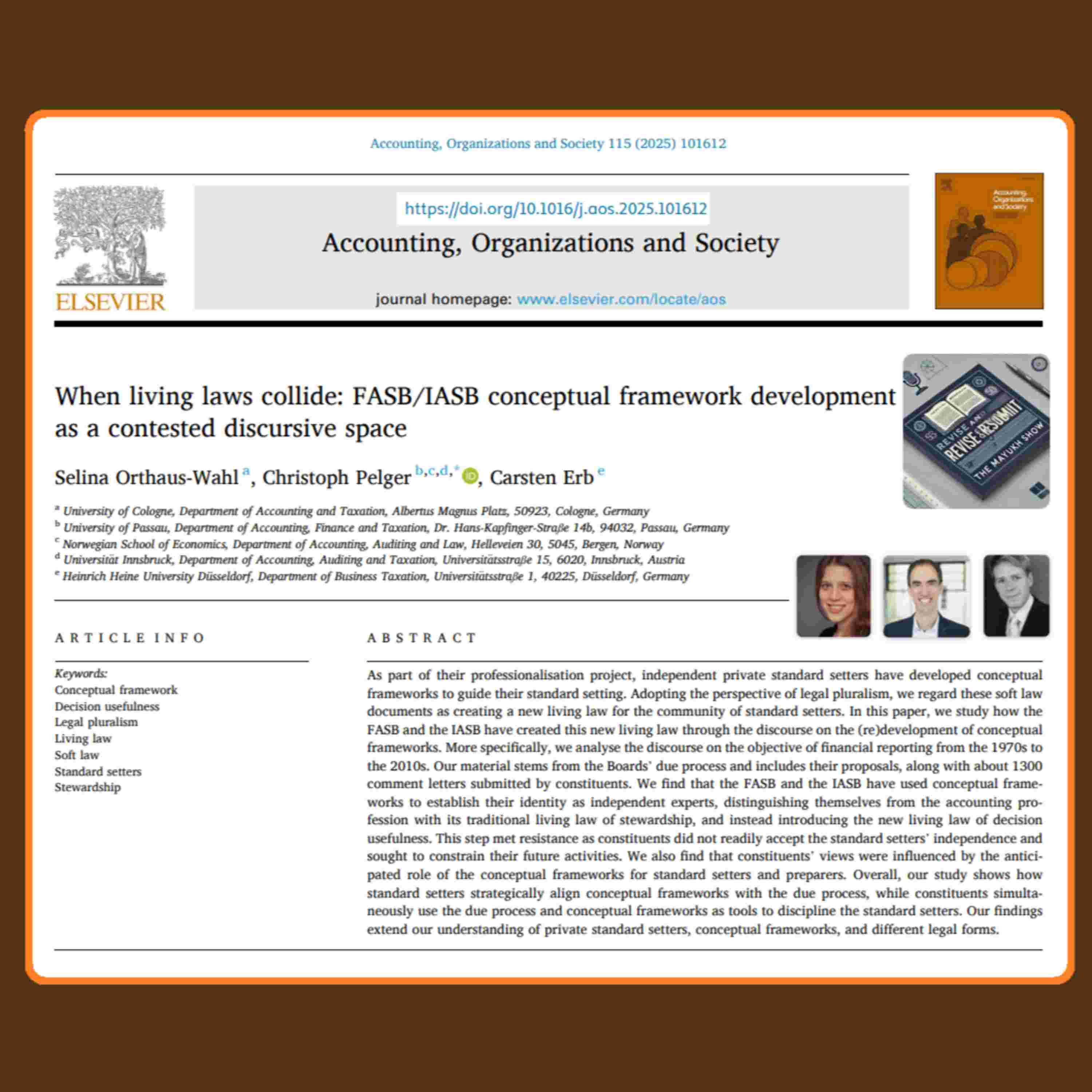

English Podcast Starts at 00:00:00
Bengali Podcast Starts at 00:14:49
Hindi Podcast Starts at 00:43:47
German Podcast Starts at 01:02:56
Reference
Orthaus-Wahl, S., Pelger, C., & Erb, C. (2025). When living laws collide: FASB/IASB conceptual framework development as a contested discursive space. Accounting, Organizations and Society, 115, 101612. https://doi.org/10.1016/j.aos.2025.101612
Youtube Channel
https://www.youtube.com/@weekendresearcher
Connect over linkedin
https://www.linkedin.com/in/mayukhpsm/
🎙️✨ Welcome to “Revise and Resubmit”! This is where academic stories come alive, where the margins of scholarship whisper louder than the headlines, and where every citation hides a spark of rebellion.
📚 Today, we dive into a conceptual battlefield — a story of law without lawmakers, rules rewritten in soft ink, and two mighty boards shaping the pulse of our financial language. The paper — “When Living Laws Collide: FASB/IASB Conceptual Framework Development as a Contested Discursive Space” — is authored by Selina Orthaus-Wahl, Christoph Pelger, and Carsten Erb, and published in the prestigious Accounting, Organizations and Society, an FT50 Journal from Elsevier. 🌟
From the 1970s to the 2010s, they trace a tug-of-war between stewardship and decision usefulness, between tradition and independence. Through 1,300 comment letters — each, a small revolution in tone — standard setters tried to script their own “living law,” only to find that every rule they wrote was already being un-written by the very voices they invited to comment. 🌀
It’s a tale of soft law, hard boundaries, and the quiet war of ideas that defines our accounting civilization. But here’s the real question that echoes beyond the journal page — when standard setters create a law for themselves, do they govern… or do they get governed? 🤔💭
🎧 Thank you to the authors and to Elsevier for this remarkable contribution to our understanding of standard-setting discourse.
📢 Don’t forget to subscribe to our podcast “Revise and Resubmit” on Spotify, and watch the extended analysis on our YouTube channel “Weekend Researcher.” You can also catch us on Amazon Prime Podcasts and Apple Podcasts — because every revision deserves a second listen. 🎧🔥